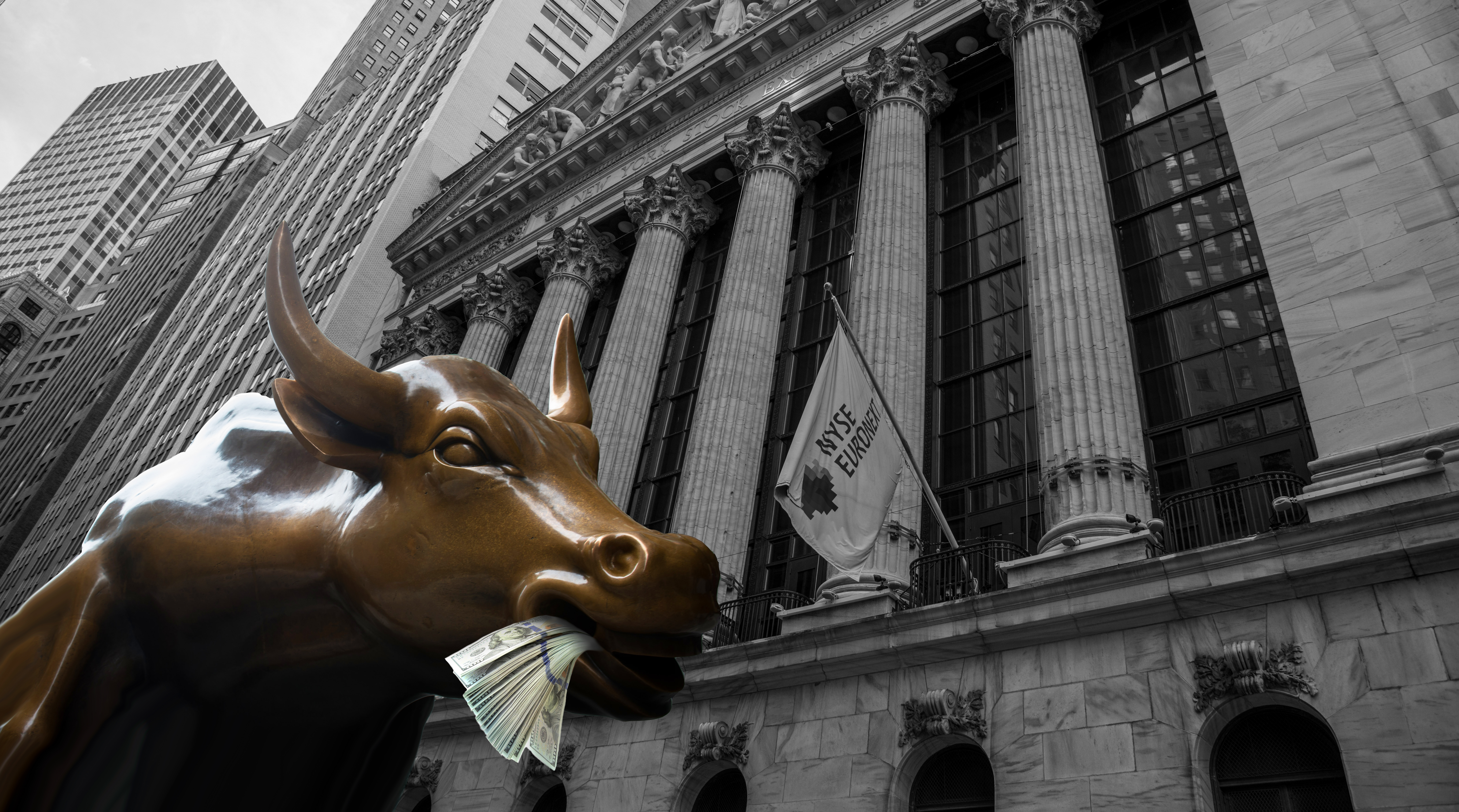How Wall Street cost you $70,000
Yes, you


Wall Street cost you $70,000.
Now, we have all long known that the financial crisis of 2007-08, the subsequent recession, and the floundering economy that has hampered America for the last decade have been quite costly. But now we know exactly how much it's cost each of us: $70,000 each for every man, woman, and child in the country.
This figure comes via new research from the Federal Reserve. The U.S. economy remains well below its pre-2008 growth path. And at this point, it looks like we'll never recover. The Fed's economists are not the first people to reach this conclusion. But the Fed paper also looks forward, and adds up the total economic output we won't see, thanks to the financial crisis, over the course of the average American's lifetime. That's where the $70,000 comes from — it's how much more the average American would have made over the course of his or her lifetime had the financial crisis not wrecked American economic growth.
The Week
Escape your echo chamber. Get the facts behind the news, plus analysis from multiple perspectives.

Sign up for The Week's Free Newsletters
From our morning news briefing to a weekly Good News Newsletter, get the best of The Week delivered directly to your inbox.
From our morning news briefing to a weekly Good News Newsletter, get the best of The Week delivered directly to your inbox.
What's more, the researchers are pretty clear that you can blame this almost entirely on Wall Street.
"Without the large adverse financial shocks experienced in 2007 and 2008, the behavior of GDP would have been very different," the economists wrote. "It would most likely resemble the less severe 1991 recession, with GDP declining by only 1.5 percent and reverting to close to its pre-crisis trend level in a few years."
In other words, that $70,000 per person is just the output we lost thanks to Wall Street's existential crisis.
By focusing on that distinction, the Fed paper tells us something important. That $70,000 isn't simply what every American paid because of our government's ideologically confused macroeconomic response to the Great Recession, and its astoundingly inadequate efforts at countercyclical stimulus — though that's certainly part of the story. Rather, $70,000 is what each of us paid for allowing Wall Street to become what it was in the run-up to 2008: a fearsome parasite that sucked the life out of the American economy, leaving it frail and vulnerable to the illness of the subprime mortgage crisis and corresponding financial panic.
A free daily email with the biggest news stories of the day – and the best features from TheWeek.com
There's a long story behind this. But the key part is a run of deregulation that freed Wall Street to flood the economy with profit-making risk. It began with 2000's Commodity Futures Modernization Act, a thoroughly bipartisan bill passed by a GOP Congress and signed by a Democratic president, which deregulated the derivatives and other financial instruments that Wall Street used to build its mountain of bets atop the housing mortgage market. This was followed by other laws and decisions by regulators that effectively sought to let the big banks do whatever they wanted to turn money into more money. The whole binge was aptly summed up in then-Fed Chairman Alan Greenspan's decision to not use the power of his institution to crack down on mortgage lending. Greenspan's faith in the unbound free market essentially led him and everyone else to believe an unregulated financial sector was a more efficient financial sector, and that the big banks knew what they were doing. (In the wake of the 2008 crisis, a chastened Greenspan admitted he'd discovered a "flaw in the model that I perceived is a critical functioning structure that defines how the world works, so to speak.")
During the middle of the 20th century, the financial industry typically accounted for between 3 percent and 4 percent of GDP. You could reasonably view that as the economic output we have to devote to coordinating all the other economic output — to making sure credit and investment goes to productive uses. But by 2005 and 2006, that number had nearly doubled to 7.6 percent of GDP. Over that same time period, even as pay stagnated for most American workers, real wages in finance doubled.
The "free market" explanation for this shift would be that the financial industry was simply getting much better at its coordination job. And we as a society were paying more for that greater value.
Of course, this was totally untrue. Our government cleared the way for the financial industry to balloon in size, and the financial industry promptly used its heft and freedom to pillage the national and global economy. This cost you $70,000.
And here's some even more sobering news: Nothing much has changed.
As of 2016, the financial industry was back above 7 percent of GDP. For the most part, the big financial players pre-2008 remain the big financial players of today. Indeed, they're bigger than ever. The government made a bipartisan decision to not use the crisis as a leverage point to smash and remake the financial industry. Instead, it threw homeowners under the bus and fought to preserve Wall Street's portfolios and power structure. The government dropped over $700 billion to bail the major banks out. There were essentially zero prosecutions of major financial executives, despite evidence of absolutely massive financial and mortgage fraud.
The government did manage to crack down on Wall Street's rampant gambling with the Dodd-Frank regulations of 2010. But seven years later, Republicans and Democrats are already working hand-in-hand to roll those rules back.
This is what every one of us bought with our $70,000. Not simply Wall Street as it was just before the 2008 crisis, but the protection and preservation of that Wall Street into the present day.
I suspect very few of us believe this was money well spent.
Jeff Spross was the economics and business correspondent at TheWeek.com. He was previously a reporter at ThinkProgress.
-
 Quiz of The Week: 22 – 28 November
Quiz of The Week: 22 – 28 NovemberQuiz Have you been paying attention to The Week’s news?
-
 The week’s best photos
The week’s best photosIn Pictures Ready for lift-off, the odd one out, and more
-
 The Week Unwrapped: Have pedigree dogs had their day?
The Week Unwrapped: Have pedigree dogs had their day?Podcast Plus what can we learn from Slovenia’s rejection of assisted dying? And can politicians admit their weaknesses?
-
 The pros and cons of noncompete agreements
The pros and cons of noncompete agreementsThe Explainer The FTC wants to ban companies from binding their employees with noncompete agreements. Who would this benefit, and who would it hurt?
-
 What experts are saying about the economy's surprise contraction
What experts are saying about the economy's surprise contractionThe Explainer The sharpest opinions on the debate from around the web
-
 The death of cities was greatly exaggerated
The death of cities was greatly exaggeratedThe Explainer Why the pandemic predictions about urban flight were wrong
-
 The housing crisis is here
The housing crisis is hereThe Explainer As the pandemic takes its toll, renters face eviction even as buyers are bidding higher
-
 How to be an ally to marginalized coworkers
How to be an ally to marginalized coworkersThe Explainer Show up for your colleagues by showing that you see them and their struggles
-
 What the stock market knows
What the stock market knowsThe Explainer Publicly traded companies are going to wallop small businesses
-
 Can the government save small businesses?
Can the government save small businesses?The Explainer Many are fighting for a fair share of the coronavirus rescue package
-
 How the oil crash could turn into a much bigger economic shock
How the oil crash could turn into a much bigger economic shockThe Explainer This could be a huge problem for the entire economy
